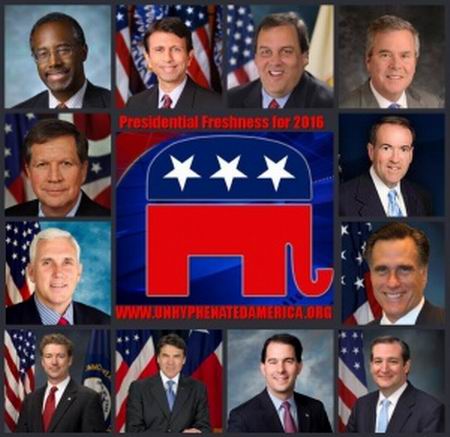
|
|

|
|
| April 18, 2024 |
|
Starting gate: Who's winning the presidential spending race? 
WASHINGTON - The first deadline for most of the candidates to report to the Federal Election Commission details of how they are raising and spending their money has passed.
The 2016 race could be the most expensive in history, in part because of spending by super PACs. Legally, the groups cannot coordinate with candidates, but there is plenty of wiggle room. The reports showed, for instance, that Jeb Bush has relied largely on wealthy donors giving the maximum contribution attracting far less financial support from more modest donors and that Rick Perry, Ben Carson and Rick Santorum are burning through the money they have raised much more quickly than most of their opponents. Hillary Rodham Clinton raised the most money for the primary of any candidate, $46.7 million, while Senator Bernie Sanders of Vermont, running against Mrs. Clinton for the Democratic nomination, brought in $15 million, the vast majority of it from donors giving $200 or less. The Republican presidential candidates are almost uniformly relying on these groups, which can tap unlimited corporate and individual contributions, to amass the financial firepower they need to break through a crowded field. This is a stark departure from past campaigns, and has made most of the candidates deeply reliant on a handful of ultra-wealthy donors. As long as there is an enormous advantage and it is literally enormous to raising money in super PACs instead of in hard money to campaigns, people are going to do what mathematically makes sense, said Newt Gingrich, whose 2012 presidential bid was bolstered by a well-funded super PAC. Mr. Gingrich, who favors lifting the limit on contributions to candidates, said it was not necessarily healthy for the country, in part because super PACs tended toward negative advertising. No one has any responsibility, Mr. Gingrich said. When candidates have to say, I approve this ad, you automatically temper the ad. The new fund-raising model has already altered the landscape of a campaign that is still months away from the first votes. Without super PACs, four Republicans Mr. Bush, Marco Rubio, Ted Cruz and Mr. Carson would have raised roughly the same amount of money, $10 million to $12 million in the second quarter of 2015, according to the F.E.C. reports and previous announcements from the campaigns. A fifth candidate, Rand Paul, would be close behind, while several others, including Mr. Perry, would be trailing. Instead, the field has rapidly separated into three financial tiers. Mr. Bush has raised about $114 million with the help of a super PAC. Mr. Cruz, Mr. Rubio and their super PACs occupy the next-highest tier, with each having raised more than $40 million. Lagging them is the third tier, which includes several candidates who declared their bids near or after the end of the fund-raising quarter and others who have been slow to raise money. (Source: New York Times) Story Date: July 28, 2015
|